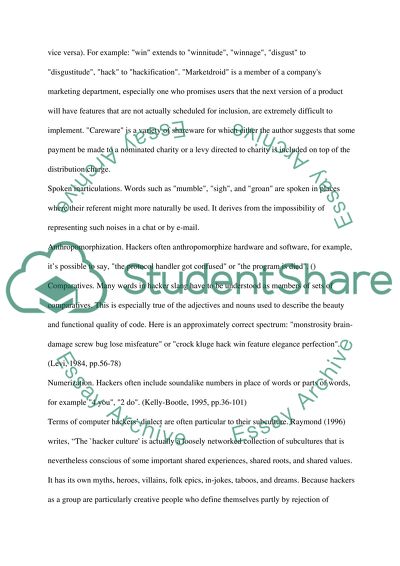Cite this document
(“Hackers slang Essay Example | Topics and Well Written Essays - 1000 words”, n.d.)
Retrieved from https://studentshare.org/english/1533152-hackers-slang
Retrieved from https://studentshare.org/english/1533152-hackers-slang
(Hackers Slang Essay Example | Topics and Well Written Essays - 1000 Words)
https://studentshare.org/english/1533152-hackers-slang.
https://studentshare.org/english/1533152-hackers-slang.
“Hackers Slang Essay Example | Topics and Well Written Essays - 1000 Words”, n.d. https://studentshare.org/english/1533152-hackers-slang.


